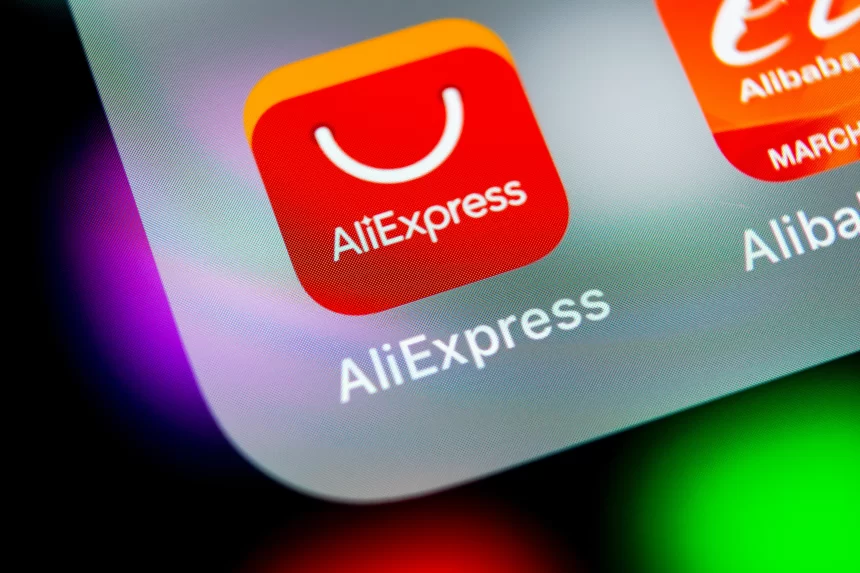Miravia has burst into the international e-commerce market as the bulwark and great savior of Alibaba, facing giants such as Amazon, Temu and Shein, but also conventional commerce such as El Corte Inglés. Miravia presents itself as a prestigious Marketplace, aimed especially at young people, counting on the support of influencers to bring high-priced branded clothing to the general public.
Miravia’s expansion has drastically transformed Alibaba’s strategy. Despite the Chinese economy’s falling exports, the Chinese multinational’s market expectations were exceeded as it closed the last quarter with €4.3 billion in profits, up 51%. It increased its turnover by 14% compared to the same quarter last year, reaching 29,459.43 million euros. For its part, its shares on the stock market have soared by 7%.
Miravia, a new concept
Miravia has arrived to save Aliexpress, which maintains its post-pandemic recovery spirit in the midst of a wave of regulatory tensions and policies. It presents itself as a lifestyle platform focused on fashion, baby, food, pets, health and beauty, aimed primarily at the Z generation and millennials. It is a new concept to attract potential customers to high-priced branded clothing.
Despite being designed for young people with high purchasing power mainly, the platform also features significant offers and discounts that can be accessed through gamified processes and games, which force you to keep shopping to win.
It not only poses a threat to e-commerce, but also to large conglomerates such as El Corte Inglés. Since their irruption at the end of 2022, they have become a fashion store of recognized firms equipped with discounts and games, exploring a hitherto empty market niche.
An optimistic economic balance
The latest analysis formulated by the financial platform Fintonic through OpenInsights shows that Chinese marketplaces have increased their sales in the first half of 2023.
In Spain, Shein has managed to grow by 40% compared to the same period in 2022, while Miravia quadrupled its sales during the second quarter of the year compared to the previous one. Meanwhile, Temu and its low-cost profile are gaining presence and Aliexpress has maintained a growth close to 5%.
The report shows that the average expenditure of people who shopped on these platforms was 80 euros, with Shein accumulating the highest average ticket with 50 euros. Miravia achieved an average of 30 euros, followed by Temu with 24 euros and Aliexpress with 19 euros. When compared to Amazon, with an average ticket of 35 euros, the figures invite optimism.
With regard to returns, Shein has a rate of over 9%, while Temu, Miravia and Aliexpress are at 6%-7%. The situation by regions shows that Catalonia and Andalusia are the ones that buy the most, with users between 18 and 24 years old predominating. In the case of Temu, the average age rises to 55-65 years.
Miravia shakes Shein’s foundations
Aliexpress has always faced a recent bad reputation with memes of the type: “What you order VS what you get”. Despite the quality of its products, the initial bad reviews to Miravia come for the pronounced delay in its shipments. However, in 80% of cases, the company commits to a 24h delivery time.
Despite Shein’s good annual revenues, the main difference lies in the product offered, as Shein’s clothing is usually cheaper and characterized by bold and eye-catching designs, while Miravia relies on branded clothing. Similarly, the visual identity of Shein’s website is simpler and more sober, while Miravia bets on a cleaner and more intuitive design, with sections with plenty of information that enhance the user’s shopping experience both online and through the app.
Regarding payment methods, Miravia allows three formulas (card, Google Pay and Bizzum), while Shein does not contemplate the latter. Regarding shipping costs, Miravia offers free shipping on orders over 10 euros, raising the minimum to 29 euros in the case of Shein.
Regarding Shein’s social reputation, in terms of working conditions, there are several NGO reports that have warned about the precarious work of its employees in China and branches in European countries. For its part, Miravia offers local products through a large company such as Alibaba.
A threat to Temu
Temu maintains the vast majority of points in common with Shein, being an incentive that has no shipping costs, although it does not accept orders under 10 euros. In addition, returns can be made up to 90 days after purchase, being the first return of each order free, while in Miravia only 30 days are available. It should also be noted that it does not offer as many varieties of top brands as Miravia.
Miravia’s future
Everything will go through its spin-off from Alibaba. The retail giant’s revenue in the last fiscal year was just €9.545 billion, coupled with pressure from the Chinese government to split its management into as many as six separate companies. In fact, the problems with the government stem from 2021 imposing a historic fine of $2.8 billion for monopolistic practices.
If it wants to maintain its prestige and its high level of sales, serving as a magnet for new generations of buyers, Miravia will have to separate itself from Alibaba by taking advantage of the rise of its new business model.


